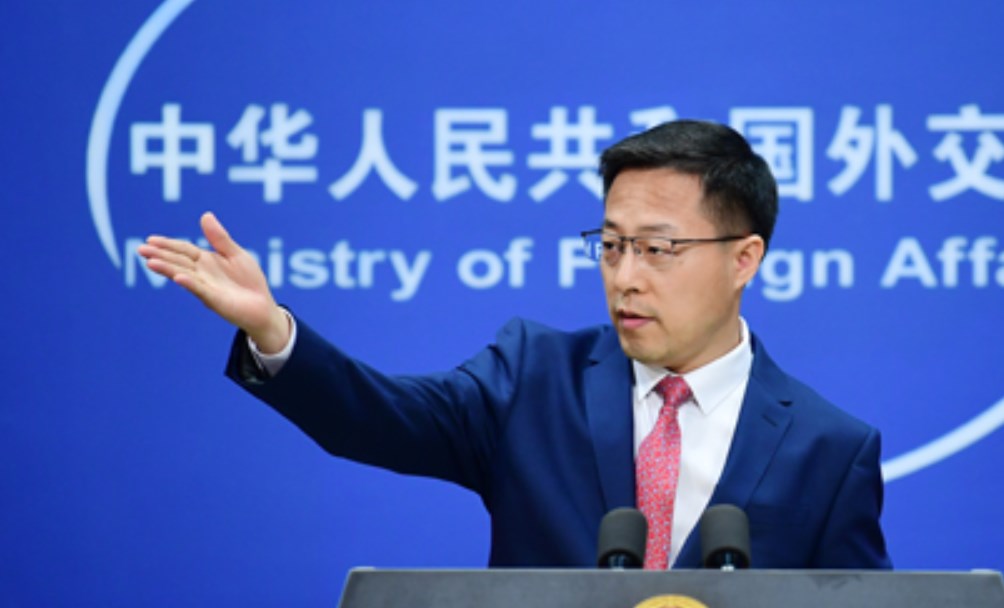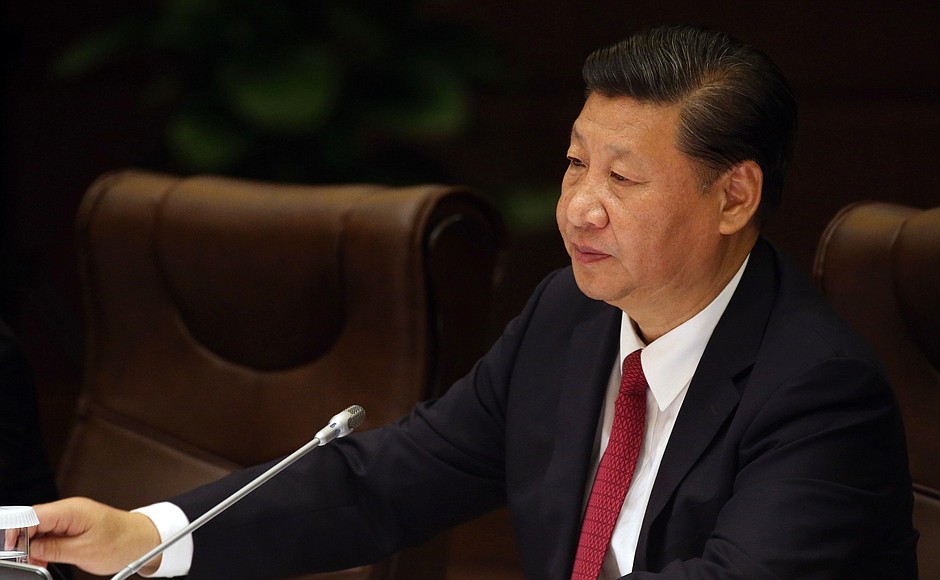by Dylan M.H Loh
China’s diplomacy has captured media attention recently for its supposed assertiveness. Particular attention has been paid to diplomats who exhibit this characteristic on Twitter.
Those such as Zhao Lijian, Hua Chunying and Zha Liyou are often cited as examples of China’s newly brash and bold diplomacy. Accordingly, commentaries have also focused on the deleterious effects of China’s so-called ‘Wolf-Warrior’ diplomats.

This attention is, in no small part, impelled by an eagerness to criticise Beijing. But it also obscures the principal motivators behind this brand of diplomacy.
There are at least three inter-related factors behind China’s more assertive diplomacy: Xi Jinping’s foreign policy ambitions; new incentives for assertiveness; and a generational shift at the Ministry of Foreign Affairs (MOFA).
Xi Jinping has made foreign policy one of his political goals and an important performance benchmark. In that way, his legitimacy and assessments of his performance, rests on the ability of China’s diplomats to deliver on his expansive, broad foreign policy goals.
Xi, for his part, has supplied the resources needed for diplomats to discharge these increased responsibilities. It has been noted, for instance, that the budget for diplomacy has doubled during the first “five years of President Xi Jinping’s rule” as he and his diplomats seek to make their mark globally.

The effects of this are two-fold. The agenda of global issues – ranging over health, finance, defence and so forth – involving the foreign ministry have expanded owing to increased resources, expertise and personnel.
Also, PRC envoys around the world are spurred to display Chinese leadership capabilities in sharper, more direct ways. Xi’s emphasis on foreign policy has encouraged diplomatic styles and practices that favour pointed, public displays of diplomacy.
Being seen to perform diplomacy confidently and assertively is now the way to approval from the political leadership and Chinese society.
Not too long ago Chinese citizens were sending the Ministry of Foreign Affairs bottles of calcium pills, to help China’s diplomats develop their ‘backbone’. This ridicule was borne largely out of the perception that China’s envoys had been reticent over international issues such as the East China Sea disputes and friction with the United States.

How quickly public opinion has changed since then, with Chinese citizens lapping up every act of strident, patriotic diplomacy!
Second, and related to the first, this has led to performance appraisals having a component that broadly covers ‘public relations’ activities. Assertive diplomacy that was previously done privately is now brought into sharp public relief.
A diplomatic source tells me that this is one key reason behind the recent flurry of Twitter presence and activities by China’s diplomats. Demonstrating one’s capabilities to promote, defend and counterattack to the Chinese public is now an important duty of diplomats and overseas embassies.
Third, China’s MOFA is undergoing a generational shift whereby a younger generation of diplomats is rising to the fore. This has resulted in a subtle but consequential shift in prevailing diplomatic tones and styles.
Younger diplomats such as Zhao Lijian, Hua Chunying and their like are clearly emboldened to conduct diplomacy in a more strident, public and assertive manner, empowered by President Xi.
One only need to scan through the Twitter accounts of Hua and Zhao, as a couple of examples, to get a sense of the ‘fighting spirit’ that diplomats in China are fast embodying, as demanded by Xi.
Older generations of envoys, for their part, lament the quiet, measured diplomacy that was modulated by Deng’s ‘hide your capacities, bide your time’ mantra. Indeed, the former director of China’s party propaganda’s department observes how “this is the first time since 1949 that the ‘new hawks’ have the power to reshape China’s diplomatic policy”.
This sort of confident diplomacy appeals most to the younger generation in China. Chinese state media — Global Times — reported that fans of younger Chinese diplomats like Zhao and Hua are from ‘Generation Z’. They are between 15 and 25 years old.
The report added that these ardent supporters are “young, confident, vibrant, and interested in national and international affairs” and are very “fond of China’s ‘Wolf Warrior’ style of diplomacy”.
In any event, this illustrates that shifts in foreign policy are seldom ‘sudden’ or revolutionary. Rather, they are often the result of incremental shifts that eventually result in significant changes.
Xi Jinping’s grip on power is showing no signs of diminishing so there is little inducement to change tack, especially since China’s international politics plays so well to domestic audiences, and satisfies local demands for China to behave like a big power.
The concern, for other international actors, is that this diplomatic behaviour is often construed as being impolite at best, and intimidation at its worst.
Moving forward, a key question is whether the sometimes-injurious effects of Chinese diplomacy are reported to the Chinese political leadership. Unfortunately, accurate and honest feedback is likely to be buried as China’s leaders are preoccupied by the pandemic and confronting the United States over the politics of Covid-19.
Dylan M.H Loh is Assistant Professor at the public policy and global affairs division, Nanyang Technological University. He is also the founding editor of ThePolitburo.org
